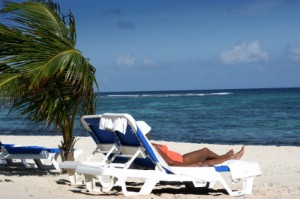“Our everyday life is someone else’s adventure”
~ Greg Richards, Cultural Tourism: Global and Local Perspectives
This is the basic foundation for all tourist activities. People leave their homes to travel, and in the process, seek out the opportunity to see and experience life through the eyes of another. Some take that more seriously, working to participate in the most authentic experiences possible, while others are satisfied to just experience the staged activities, beaches, shopping and food of another locale. Regardless of the type of tourist experience, the tourism industry is an extremely powerful multi-billion dollar force in the global economy. “As the largest business sector in the world economy, the Travel and Tourism Industry is responsible for over 230 million jobs and over 10% of the gross domestic product worldwide” (The International Ecotourism Society, 2006, p. 1).
 Tourism has been used as a model for economic development and cultural preservation around the world. It is seen as a way to bring foreign dollars into the local economy and as a way to create employment and monetary gains for the citizens of the destination. Unfortunately, tourism has not lived up to its promised benefits and often other foreign nations, and not the destination, benefit from the economic resources generated by tourists and tourism. “Although mass tourism was originally embraced by many countries as a ‘smokeless’ (nonpolluting) industry that could increase employment and gross national product, evidence quickly grew that its economic benefits were marginal and its social and environmental costs high” (Honey, 1999, p. 9).
Tourism has been used as a model for economic development and cultural preservation around the world. It is seen as a way to bring foreign dollars into the local economy and as a way to create employment and monetary gains for the citizens of the destination. Unfortunately, tourism has not lived up to its promised benefits and often other foreign nations, and not the destination, benefit from the economic resources generated by tourists and tourism. “Although mass tourism was originally embraced by many countries as a ‘smokeless’ (nonpolluting) industry that could increase employment and gross national product, evidence quickly grew that its economic benefits were marginal and its social and environmental costs high” (Honey, 1999, p. 9).
The economic goals of tourism, to eliminate poverty, are often not met due to the economic benefits of tourism not reaching the communities that live year round in a destination. In fact, many of the economic benefits of tourism development directly benefitted only those based or living outside a destination. “The money did not stay in the host country, and often the only benefit to the local community was found in low-paying service level employment as maids, waiters and drivers. Mass tourism often brought overdevelopment and uneven development, environmental pollution, and invasion by culturally insensitive and economically disruptive foreigners.” (Honey, 1999, p. 9)
I am an avid traveler and have conducted a great deal of research on the impacts of tourism on local communities. Sustainable Tourism initiatives have been created to increase the positive impacts of tourism. Using the model of searching to find a balance of People, Profit and Planet is often at the core of most sustainable tourism initiatives. However, this balance is very difficult to acquire. Unfortunately, in most strategies people get the short end of the stick, with locals often only receiving minimal benefits through employment.
I will continue to seek out strategies to increase the positive impacts of tourism. This will include highlighting individuals and organizations within the tourism industry that are doing their best to improve the outcomes of tourism for local communities. If you are in the tourism industry and would like to join the conversation or be featured please contact us at blog@notenoughgood.com.
Sources:
Honey, M. (1999). Ecotourism and Sustainable Development: Who Owns Paradise? Washington D.C.: Island
The International Ecotourism Society. (2006). TIES Global Ecotourism Fact Sheet.


